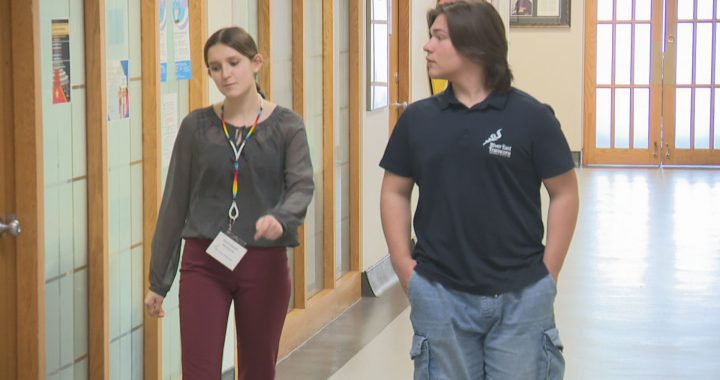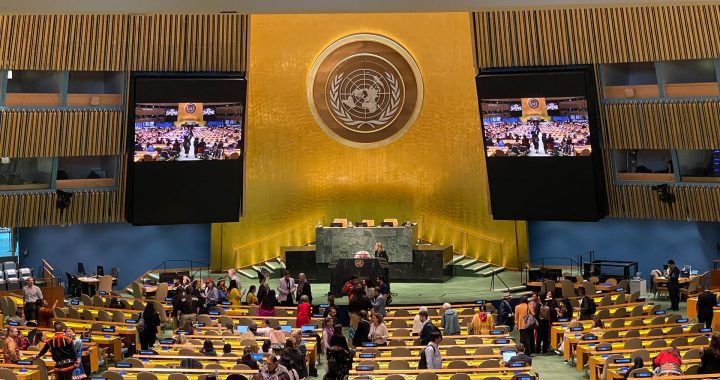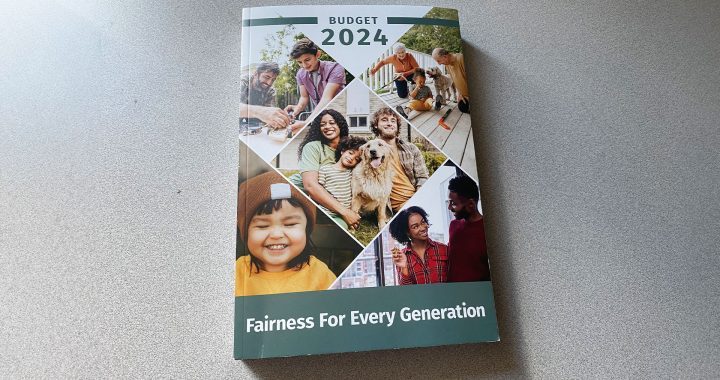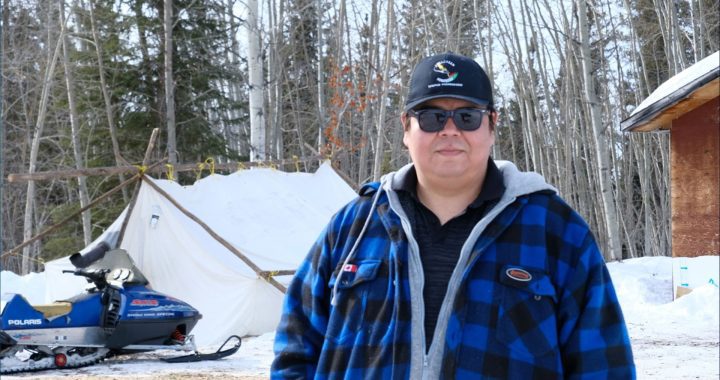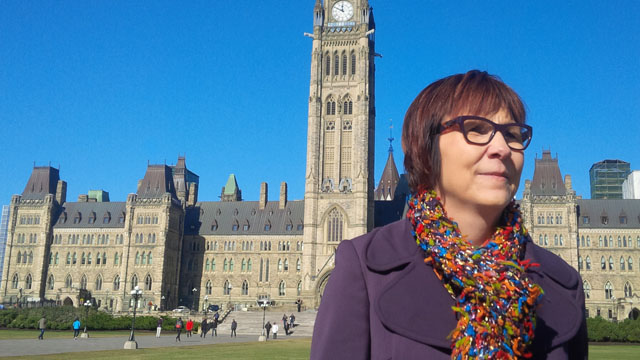
Cindy Blackstock – Special to APTN News
Remembrance ceremonies for murdered and missing Indigenous women and girls happened across the country on Oct. 4, 2019 and Canada marked the occasion by filing a judicial review of a Canadian Human Rights Tribunal ruling ordering it to pay maximum damages to the First Nations children and families affected by its ongoing “wilful and reckless” discrimination.
Prime Minister Justin Trudeau and Minister of Indigenous Services Seamus O’Regan assured an outraged public that they were for compensation, but “just needed more time” to “get it right.” This sounds good on principle, but none of these statements are supported by Canada’s actions, namely their positions on compensation or their appeal applications.
As a quick refresher, the Canadian Human Rights Act allows for up to $20,000 in compensation per victim of discrimination and a further up to $20,000 per victim if the discrimination was wilful and reckless.
Put simply, wilful and reckless means the discrimination was intentional.
To follow the trail of Canada’s positions on compensation we need to go back 12 years to 2007 when the First Nations Child and Family Caring Society (Caring Society) and the Assembly of First Nations filed a human rights complaint alleging Canada’s longstanding underfunding of First Nations child welfare and failure to implement Jordan’s Principle was racially discriminatory.
Canada took immediate action – it cut the Caring Society’s core funding then began filing motions to have the case dismissed, arguing “funding is not a service” and it was unfair to compare federal child welfare funding with the funding non-Indigenous kids get from the provinces. By 2009, the Caring Society lost all federal funding and Canada continued to file motion after failed motion to have the case dismissed before the facts could be heard. Thankfully they were unsuccessful.
By 2014, during final arguments, Canada argued the case should be dismissed and there should be no compensation awarded. When the decision came out in 2016 substantiating the complaint and ordering Canada to immediately cease its discriminatory practices, Prime Minister Trudeau and his government welcomed the decision but did nothing to implement it. The Tribunal held the compensation decision under reserve, focusing instead on the urgent need for Canada to implement Jordan’s Principle and end its discriminatory child welfare funding. After issuing seven non-compliance orders, the federal government finally took some steps to comply with the orders on prevention and Jordan’s Principle, but there is still more to do and further orders are expected.
With the pressing matter of immediate relief of the discrimination addressed, the Tribunal again turned its attention to compensation.
In 2017, the Caring Society and other parties invited Canada to sit down and discuss the compensation matter in hopes that it could be resolved. And yet, Canada refused to mediate, saying the only way to resolve the matter was through litigation. A far cry from the prime minister’s most recent statements on the case, saying his government wishes to engage with “partners” to resolve the issue of compensation.
The compensation hearings were held in the spring of 2019 – well before the election campaign began. Canada’s official position was that compensation should not be paid because no victims of the discrimination (children and families) had testified in the case. It also argued that the Tribunal did not have the power to award compensation in a case of systemic discrimination.
The AFN and Caring Society countered Canada’s arguments pointing to the substantial amount of evidence, much of it authored by federal employees, showing that the discrimination was contributing to the deaths of some children and thousands of unnecessary family separations. We also raised serious ethical concerns about the federal government’s proposition that children who were taken from their families should be called to testify about what that is like for them in order to substantiate their entitlement to compensation.
Canada also raised the money issue, noting that compensation could cost billions and this was a strain on the government. The fact that the government discriminated against so many children should not reduce its accountability to each child and family.
The hearings wrapped up and the Tribunal took the decision under reserve. Canada made no proposals to settle the compensation matter before the ruling was issued in September 2019. The Tribunal ordered that Canada pay $40,000 – maximum damages – for its wilful and reckless discrimination against First Nations children in a “worst case-scenario.” The Tribunal noted that Canada had known about the discrimination for two decades and failed to remedy it even though it was aware that children were being unnecessarily removed from their families due to a lack of services. In some tragic cases, children even died.
As part of the September ruling, the Caring Society and Assembly of First Nations were ordered to work with the federal government to develop a process for the disbursement of the compensation and report back to the Tribunal by Dec. 10, 2019. We contacted Canada immediately and were told they did not have anyone available to talk to us, so we began working hard on the implementation plan without them whilst periodically checking in to see if someone representing Canada would agree to meet.
The election writ was dropped in mid-September and Canada filed its application to overturn the Tribunal’s compensation order and a stay of the Tribunal’s decision (to put it on hold until the judicial review could be heard) on Oct. 4, 2019. The federal government argued irreconcilable harms to itself (not the children and families) as a basis for the stay application.
In statements made the day the judicial review was filed, Prime Minister Trudeau and Minister O’Regan said they wanted to talk to “partners” in order to “get it right,” but there was no time to do either of these things because of the election.
What they did not mention is this: Canada has known about the impending compensation order for more than three years; it argued that it should not pay any compensation earlier this year; and it has repeatedly refused to talk to “partners” about settling the compensation issue.
It is impossible to reconcile Canada’s conduct in this case with its pledge to residential school survivors to implement the Truth and Reconciliation Commission’s Calls to Action – particularly as equitable child welfare is Call to Action number one and the full implementation of Jordan’s Principle is number three.
How could they weep for residential school survivors while simultaneously perpetuating similar harms to their children and grandchildren? I still don’t know the answer, but I think it has something to do with accountability, money, and colonial control.
Prime ministers are quick to admonish the missteps of their predecessors, but not as keen to embrace their responsibility for moral and legal failings on their own watch. The federal government has normalized racism as fiscal policy, even when it comes to children’s services and anoints itself the pacemaker as to when the discrimination will end, despite being the perpetrator of the inequality.
That is why the Spirit Bear Plan is so essential to ending the discrimination. It has two key parts: 1) Do an independent evaluation of the federal government to figure out why they don’t do better for kids when they know better. 2) Cost out all inequalities affecting First Nations children and families and develop a comprehensive plan to end them all in a reasonable period of time.
Canada refuses to adopt the Spirit Bear Plan and has not provided a meaningful alternative. We need to keep pressing, because it is clear that political pronouncements of reconciliation are not sufficient to end the discrimination and kids are paying the price.
As for the compensation issue, the Caring Society has already filed its notice of appearance with the Federal Court. Canada has asked that its stay application be heard on Oct. 23, 2019 – two days after the election ends.
Despite 12 long years fighting this case, I am optimistic – I think the kids will win. After all, they have won all but one of the 15 or so decisions handed down by the Canadian Human Rights Tribunal, Federal Court and Federal Court of Appeal, and that was overturned.
As an important contribution, this generation of children will never have to go looking for a record to substantiate their claims of discrimination. The Tribunal has issued clear orders and APTN has taped all of the hearings.
Canada can stall, litigate and mislead, but justice is coming whether it likes it or not.
Cindy Blackstock is a member of the Gitxsan First Nation. She currently serves as Executive Director of the First Nations Child and Family Caring Society and is a professor at the McGill School of Social Work.
@aptnnews






